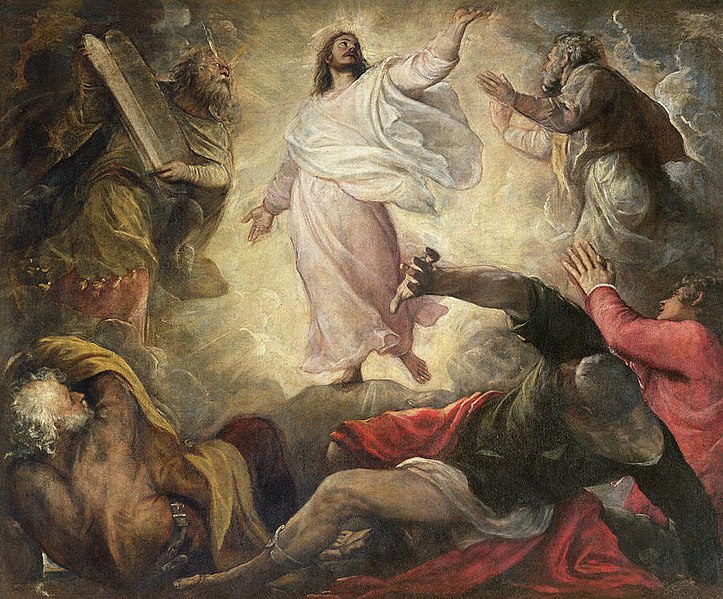Luke 18:31-43
Jesus said to his disciples, “See, we are going up to Jerusalem, and everything that is written about the Son of Man by the prophets will be accomplished. For he will be delivered over to the Gentiles and will be mocked and shamefully treated and spit upon. And after flogging him, they will kill him, and on the third day he will rise.” Jesus says that everything written in the prophets concerning the Son of Man will be accomplished. Jesus is speaking about the Holy Scriptures, specifically, the Old Testament. The Old Testament speaks of Jesus, his birth, works, suffering and death, and of course, his resurrection on the third day. Whenever we do a Bible study on a book of the Old Testament we discover this. Christ is proclaimed in every chapter.
Yet, nowhere in the Old Testament does it declare this message so clearly and distinctly as Jesus does here. Jesus speaks in no uncertain terms. He will be delivered over to the Gentiles. He will be mocked and shamefully treated. He even includes the detail that they will spit on him! He will be killed and he will rise on the third day. These are not difficult words to understand. If faithful believers read the Old Testament and from its words believed and hoped in Christ, then certainly the disciples should understand these clear words. But his disciples don’t understand what Jesus is talking about. And this was the third time Jesus told them that he would suffer and die and rise on the third day, yet his disciples did not grasp what Jesus said.
The disciples did not grasp what Jesus said, because their sinful flesh wouldn’t let them. When we think of our sinful flesh, also called our sinful nature, we often think of our unholy desires, our sinful cravings. Yet, the sinful flesh also affects the mind. The disciples did not understand what Jesus was saying, because their sinful human reason did not want to understand Jesus’ clear words. Jesus was their master. He healed the sick, raised the dead, cast out demons, walked on water and calmed storms, and fed thousands. He certainly should ascend as king over all the people. It makes no sense that he should suffer and die. How could this man, who had proven himself to be the Christ, the Son of God, be treated so terribly. How could he die?
This is our natural disposition to what God says. We judge what God says according to what we think and feel. This is called magisterial reason. You use magisterial reason when your reason rules over the Bible. You judge what it says and you make it fit how you think. The disciples did this with what Jesus said. And since their reason could not fit what Jesus said into how they already thought of him, they thought his clear words were some sort of riddle.
People do this all the time. They read the Bible and rule over it, so that it agrees with what they want to believe. In fact, Christians and false Christians are the worst at this! Unbelievers will read the Bible, understand the plain words, and reject it saying, “I see what it says and I don’t believe it.” But, people who want to be considered Christians will read the Bible, not like what it says and say, “I read it, but it’s not clear. I don’t know what it says.”
And this is how we now have a situation in the Christian church where the clearest teachings in Scripture are rejected. Christians and so-called Christian churches cannot take a stand against abortion, which is the killing of unborn children. Scripture is not unclear on this. Scripture states, “You shall not murder.” (Exodus 20:13) and “For you formed my inward parts; you knitted me together in my mother’s womb. I praise you, for I am fearfully and wonderfully made.” (Psalm 139:13-14)
Christ Jesus says, “Have you not read that he who created them from the beginning made them male and female, and said, ‘Therefore a man shall leave his father and his mother and hold fast to his wife, and the two shall become one flesh’? So they are no longer two but one flesh. What therefore God has joined together, let not man separate.” (Matthew 19:4-6) Yet, the Christian church on earth fails to teach that marriage is between one man and one woman and that this is a lifelong union that should not be broken. People actually have the gall to state that Jesus would not have a problem with same-sex so-called marriage! If Jesus is not clear enough here, we have the words of St. Paul, an apostle of Jesus Christ, who writes by inspiration of the Holy Spirit:
“For this reason God gave them up to dishonorable passions. For their women exchanged natural relations for those that are contrary to nature; and the men likewise gave up natural relations with women and were consumed with passion for one another, men committing shameless acts with men and receiving in themselves the due penalty for their error. And since they did not see fit to acknowledge God, God gave them up to a debased mind to do what ought not to be done.” (Romans 1:26-27) and later, “Though they know God’s decree that those who practice such things deserve to die, they not only do them but give approval to those who practice them.” (Romans 1:32)
Scripture clearly says that God made them male and female, yet in recent years our children have been taught that a man can decide to be a woman and a woman can decide to be a man or if a person decides he doesn’t want to be either, that is fine too. Children are encouraged to reject how God has made them based on their feelings. And many churches and Christians remain silent.
The Sixth Commandment is not a complicated commandment. “You shall not commit adultery.” (Exodus 20:14) This means that we should fear and love God so that we lead a chaste and descent life in what we say and do and husband and wife should love and honor each other, as Hebrews chapter 13 states, “Let marriage be held in honor among all, and let the marriage bed be undefiled, for God will judge the sexually immoral and adulterous.” (vs. 4) Yet most Christians turn a blind eye to fornication and accept it as just a fact of the times.
Why do so many Christians and churches reject the clear words of Scripture? Why do they say that the Bible is unclear? Because they don’t like what it says. They don’t like that God calls these behaviors sinful! They don’t like that God demands that we exercise self-discipline. The words of God offend them, so they reject them.
And this reveals a very bad spiritual condition of many in the church. Why is it offensive to call homosexuality, fornication, divorce, abortion, and transgenderism sinful? Well, it’s hurtful to say such things. It means that these individuals who practice or have done some of these things are doing something wrong or that there is something wrong with them! Well, yes, that’s true. It is hurtful to say such things. It does mean that they are doing something wrong and that there is something wrong with them. But what do you think of your own sins and your own sinful condition? What sins are you trying to hide from God?
I think it’s pretty clear that the reason why Christians do not want to call behavior, which the Bible calls sinful, sinful, is because they don’t want to acknowledge that their own hearts are sinful, that they themselves need to repent. This is self-righteousness; the sin of the Pharisees. We should not try to protect ourselves from the judgment of God’s Law by denying that God’s Law says what it clearly says. That will only lead to impenitence, pride, false belief, and finally condemnation.
Yet, how does Scripture tell us to deal with our sins? And what does Scripture tell those who have had abortions, or have homosexual desires, or have committed fornication, or any other sinful behavior? Repent and believe in the Gospel! (Mark 1:15).
Listen to how St. Paul addresses some of these same sins in his letter to the Corinthians, “Or do you not know that the unrighteous will not inherit the kingdom of God? Do not be deceived: neither the sexually immoral, nor idolaters, nor adulterers, nor men who practice homosexuality, nor thieves, nor the greedy, nor drunkards, nor revilers, nor swindlers will inherit the kingdom of God. And such were some of you. But you were washed, you were sanctified, you were justified in the name of the Lord Jesus Christ and by the Spirit of our God.” (1 Corinthians 6:9-11)
St. Paul didn’t tell them that their sins weren’t sins. And the Church in Corinth, which God built through the labors of St. Paul, was not made up of a bunch of perfect people who never sinned. Rather, St. Paul confronted these people with their sins, they repented, and he declared to them the free forgiveness and salvation that comes from Jesus Christ. The Church must continue to call sin, sin, even as Holy Scripture does, so that sinners can look to Jesus, who saves sinners.
Scripture clearly teaches that God saves sinners not by their own works, but rather through the merits of Christ Jesus who died for all our sins. Scripture clearly teaches that whoever believes in Jesus Christ will have eternal life. Scripture says, “For by grace you have been saved through faith. And this is not your own doing; it is the gift of God, not a result of works, so that no one may boast.” (Ephesians 2:8-9) And again in Romans 4, “And to the one who does not work but believes in him who justifies the ungodly, his faith is counted as righteousness.” And Jesus says in John chapter 6, “This is the will of my Father, that everyone who looks on the Son and believes in him shall have eternal life, and I will raise him up on the last day.” (vs. 40) Yet, despite these clear passages our human reason does not want to believe that we are saved apart from anything we do. We want to earn our salvation. This is also why many refuse to acknowledge their sins, because they don’t truly believe in God’s grace to forgive.
In short, our human reason does not want to believe in the Gospel. Our magisterial reason wants to rule over Scripture and make it say something that makes sense to us.
And so, we need to be not like the disciples in our lesson, but rather like the blind beggar. The blind beggar wasn’t even there when Jesus clearly told his disciples about his death and resurrection. Yet, this blind beggar has concluded from what he had heard about Jesus, and what he had heard about the Christ, the Son of David in Scripture, that he would “open the eyes that are blind” (Isaiah 42:7), and he cried out to Jesus for mercy.
Here we have an example of ministerial reason. Now, I’ve spoken quite a bit about how our human reason works against God and rejects his word. That is called magisterial reason. Yet, ministerial reason is different. Ministerial reason is when God uses our reason, so that we understand his word. That is what God did for the blind man. The blind beggar used his ministerial reason, meaning, he used his senses to listen to the promises of Scripture and listen to the report of Jesus of Nazareth, and conclude that Jesus is the Christ, the Son of David, who opens the eyes of the blind.
The blind beggar teaches us what true faith is. True faith trusts in God’s promises despite what your feelings say or what conventional wisdom says. True faith seeks to understand what God actually says in Scripture and clings to that promise.
The blind beggar cried to Jesus for mercy, because he believed that Jesus would make him see. Often when we think of crying for mercy, we think that God is angry at us and we are asking him to stop being angry, to change his disposition toward us. Yet, that is not how the blind man cried for mercy. He cried for mercy with the belief that Jesus wanted to make his eyes see.
Before Jesus went to the cross and died for our sins, he told his disciples three times that he would go and suffer greatly, die, and rise again. It was not an accident that Jesus went to the cross. Jesus knew that he would go and die for our sins. He himself said, “For this reason the Father loves me, because I lay down my life that I may take it up again. No one takes it from me, but I lay it down of my own accord. I have authority to lay it down, and I have authority to take it up again.” (John 10:17-18)
This shows us that Jesus wanted to go to the cross to save us from our sins. He desired our eternal salvation. He knew what he was doing. And this shows us that when we cry to God for mercy; to heal our diseases; to take away our pain; and most especially, to forgive our sins and give us eternal life; God wants to do this for us. When we say, “Lord, have mercy on us. Christ, have mercy on us. Lord, have mercy on us.” We are asking God to be who he is: merciful. And we are asking God to do what he wants to do: give forgive us and give us eternal life.
Scripture clearly reveals to us a merciful God. When we listen to Scripture and don’t let our emotions or reason rule over Scripture, we see a God to whom we can cry for mercy and know we will receive it. Amen.




 RSS Feed
RSS Feed